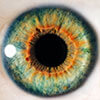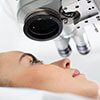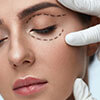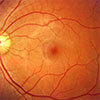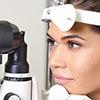Cataract Surgery with Vision Correction
Vision Correction may be added to cataract surgery for those patients who are interested in reducing the need for glasses after cataract surgery. Vision Correction is helpful to reduce the need for glasses because standard cataract surgery alone is intended only to improve the ability to see with glasses.
When you choose cataract surgery with Vision Correction, we use additional state-of-the-art technology that can actually transform your vision. Our surgeons use these tools, including advanced technology intraocular lenses, to address astigmatism, nearsightedness, farsightedness, and the need for reading glasses. Relative to standard insurance-covered surgery, this option offers more accuracy, expands the range of clear vision and reduces dependence on glasses.
Our physicians will use these advanced technologies to determine the best surgical treatment based on your desired outcome, lifestyle and vision preferences.
While standard cataract surgery is an insurance-covered benefit designed to help you see better with glasses, Vision Correction is not considered “medically necessary” and therefore, is not covered by insurance. We will go over the financial options with you to help you make an informed decision and answer your questions.
For additional information on cataract surgery, Vision Correction and options that fit your lifestyle, please contact one of our clinics for an evaluation.
Vision Correction Technology
Vision Correction includes the use of advanced technology that is designed to reduce the need for glasses after surgery. Different patients often need different technology to meet their vision goals. Your surgeon will determine which technology is best for your vision needs. Some of the available technology is listed below.
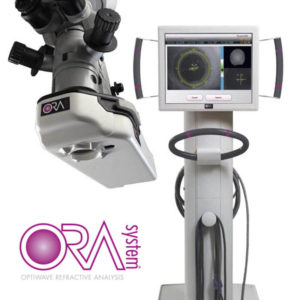
Optiwave Refractive Analysis
The Optiwave Refractive Analysis (ORA) system allows our surgeons to make sure that you have your best vision correction outcome.
This system uses three cameras on our viewing microscope and sophisticated computer software to take measurements of your eye during surgery. This helps our surgeons refine the intraocular lens choice and guides them in tailoring treatment to your individual eye to ensure your best possible vision. This technology is available in all of our surgery center locations
Femtosecond Laser
Femtosecond laser technology can be used to improve precision of incisions made during cataract surgery. Incisions are made to correct astigmatism and to guide placement and positioning of the lens implant. This laser may also be used to assist removal of the cataract.
Advanced Technology Lenses
Intraocular lens implants (IOLs) offer an enhanced range of vision for patients who need cataract surgery or refractive lens exchange.
Each type of lens has its own merits, so your surgeon can recommend the best lens implant for you, depending on your lifestyle needs.
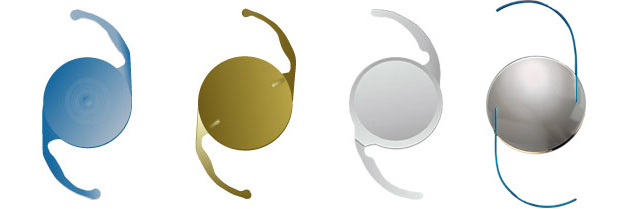
Different Types of IOLs
Single vision, or monofocal, lens implants offer a single fixed focal length. This means that you can choose whether you want your distance or near vision to be clearest when you are not wearing glasses after surgery. However, you may still need glasses for both distance and near to get the best vision after having a monofocal lens placed.
Presbyopia correcting lens implants have multiple or extended focal lengths. This means that a person can see better for both distance and near vision. There is additional cost for these lenses not covered by insurance.
Toric lens implants correct astigmatism, as well as distance or near vision. There is additional cost for these lenses not covered by insurance.
RxSight™ Light Adjustable Lenses (LAL) provide your surgeons the option to further customize your vision after surgery. This advanced technology lens is made of photo sensitive material that adjusts when exposed to UV light. After surgery, your surgeon can apply UV light to the lens in order to refine and tailor your final visual result. Visit RxSight.com to learn more about this technology.
FAQs for Patients and Healthcare Professionals or download Patient LAL Brochure or UV Glasses Brochure
Currently offered at our Mount Vernon or Seattle Northgate surgery locations. Please contact these clinics for more information.
Common Questions About Vision Correction
What is the difference between Cataract Surgery and Cataract Surgery with Vision Correction?
Cataract surgery is the removal of the cloudy lens and implantation of a clear lens, eliminating the haze and decreased vision associated with a cataract.
Cataract surgery with Vision Correction involves a more personalized approach and advanced tools to not only remove your cataract, but to reduce dependence on glasses. Most people have certain activities for which they need perfect vision, and they will still use glasses for those activities. Our physicians will use advanced technologies and tools to determine the best surgical treatment based on your lifestyle, activity preferences and desired vision outcome.
You will discuss your needs with your surgeon to determine whether cataract surgery with Vision Correction is appropriate for you.
Will my insurance pay for Cataract Surgery with Vision Correction?
Insurance will typically cover the cost of the cataract surgery itself, just as they would with standard surgery. However, insurance will not cover the additional out-of-pocket expense associated with vision correction. You are responsible for paying copays, deductibles, coinsurance, and the cost of the additional technology used in cataract surgery with Vision Correction.
What is astigmatism?
Astigmatism is a common condition that causes blurred vision due to either an irregular shape of the cornea, the clear front part of the eye, or the lens inside the eye. The irregular shape prevents light from focusing properly on the retina, the back surface of the eye. This results in blurred vision at any distance. Astigmatism can be reduced with surgery using Vision Correction technologies.
I do not wear glasses now. Will I need to wear glasses after cataract surgery?
Even if you did not wear glasses before cataract surgery, there is a possibility that you will need glasses after cataract surgery.
The natural lens balances vision of the eye so you see well. Since the cataract is in the lens, the clouded lens must be removed and replaced with an artificial lens implant during cataract surgery. This may leave unbalanced astigmatism or other conditions that are not corrected by the insurance-covered artificial lens implant, and that will require you to wear glasses to see well after surgery.
Cataract surgery with Vision Correction uses additional technology and services to correct this imbalance, and reduce your need for glasses after surgery.
How soon after Cataract Surgery with Vision Correction will I be able to see well?
Everyone heals differently after surgery. Most healthy eyes begin to recover vision during the first week after surgery. Please discuss the specifics of your procedure with your surgeon. In general, vision is usually very good by the time you finish using the postoperative drops, or in about a month.
Depending on the decisions about Vision Correction made by you and your surgeon, your near vision may continue to improve for 3-6 months after surgery. The quality of near vision will depend on your working every day to see at near, and resisting the use of reading glasses. Sometimes after surgery, patients see rings, haloes, or starbursts around lights. Not everyone sees this phenomenon, but if you do, it’s expected to gradually diminish over 6-12 months after surgery.
Why might the costs of Cataract Surgery with Vision Correction differ between me and my friend?
Depending on lifestyle and vision preferences, a person might request a different level of Vision Correction to reduce dependence on glasses for a greater range of activities. The additional cost of providing this extra level of Vision Correction is reflected in the higher price. Also, depending on insurance coverage for surgical procedures, co-insurance and co-pays, patients may pay different amounts for the surgery portion of cataract surgery, in addition to the cost of Vision Correction technologies.
What if my vision isn’t what I expected after cataract surgery?
If your vision is not as clear as expected by the time you finish using your postoperative eye drops, please contact your surgeon.
Your eye doctor managing your postoperative care will inform you if there is any condition during recovery that requires additional treatment. Certain conditions that affect vision may commonly arise after cataract surgery, and require additional treatment that is considered medically necessary and covered by insurance.
Some patients who choose cataract surgery with Vision Correction will require additional enhancement procedures or additional laser vision correction to achieve their best vision result. However, the recommendation for enhancement is based on the surgeon’s discretion and the patient’s individual needs. The cost of these additional Vision Correction procedures is included in the initial cost of cataract surgery with Vision Correction.



